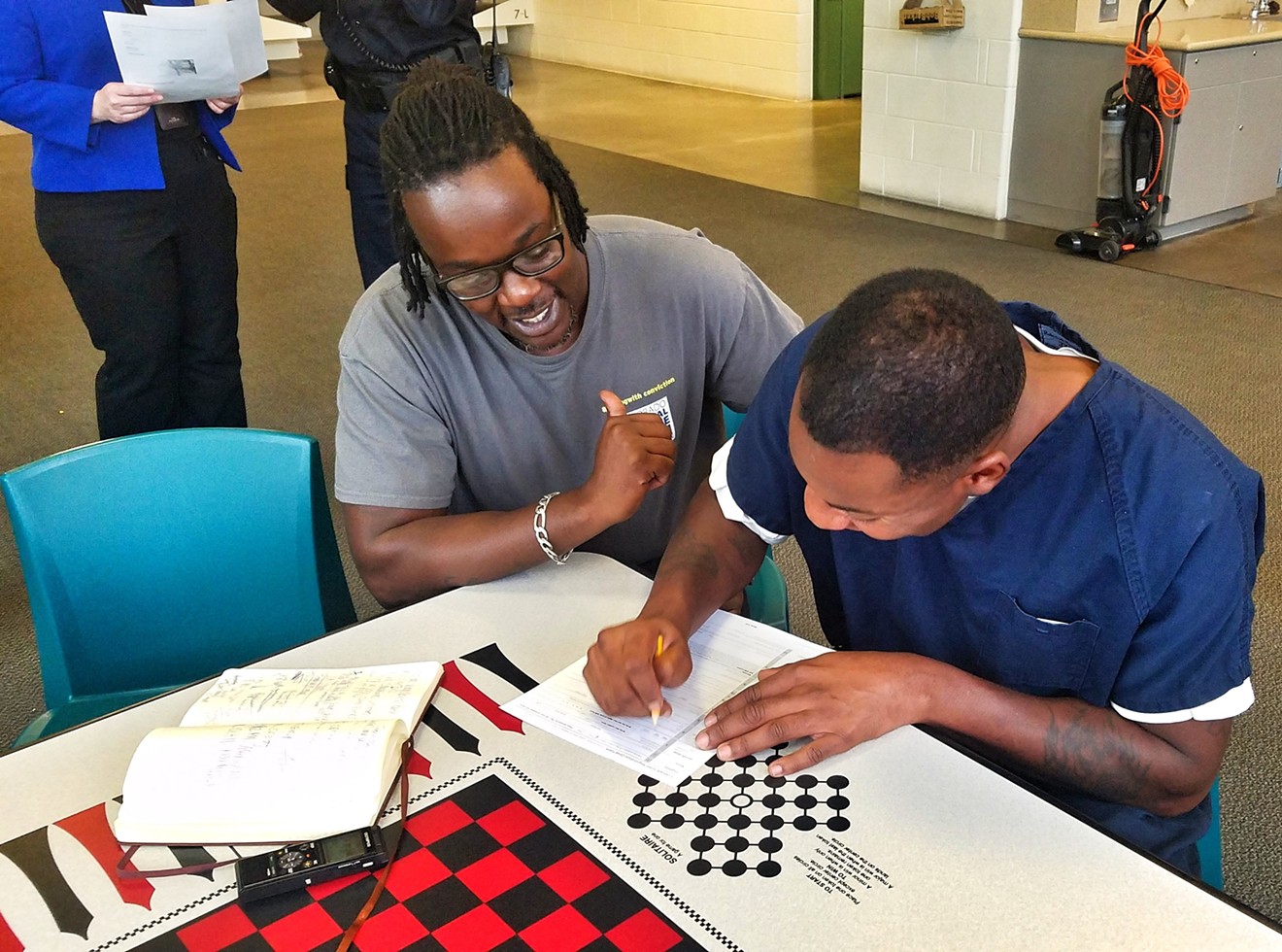But on October 11 at the Denver Downtown Detention Center, Gonzales finally learned that, despite what happened in the past, he can still vote in Colorado.
"It's a good feeling. Not everybody is perfect, but I've always wanted to vote. And it's good for every American to vote," he says.
Gonzales's epiphany came during a voter-registration campaign event at the detention center. For its Voting With Conviction registration drive, the Colorado Criminal Justice Reform Coalition teamed up with the Denver Sheriff Department and the Denver Elections Division to get the word out that most people with criminal records in Colorado are able to vote.
Volunteers from CCJRC spent October 11 going from one cell pod to another, speaking with inmates about registering to vote and imparting the importance of voting in races that will decide new judges and the state's next attorney general and governor this November.
Volunteers also explained what would disqualify someone from being able to vote in Colorado. Those currently serving time for felony convictions and those who have had their parole revoked or are currently on parole can't vote. Everyone else, including people awaiting trial for felony charges, can.
The majority of inmates at the Downtown Detention Center are not serving time for felony convictions. And many, like Antoine Grimes, are excited to participate in the upcoming election.

Antoine Grimes is excited to register to vote. He last voted in the 2012 General Election.
Conor McCormick-Cavanagh
According to a recent survey by CCJRC, only 57 percent of Coloradans "knew that individuals who have been convicted of a felony or misdemeanor are eligible to vote once they have completed their sentence."
"[Inmates] often tell us they had no idea. But voice matters. The inmates are responding very well," says Carrie Stanley, director of inmate programs at the Denver Sheriff Department.
The awareness-raising initiative goes back to 2006, when CCJRC started the "only civic engagement campaign in Colorado that focuses exclusively on people with criminal records." In 2016, CCJRC partnered with the Denver Elections Division and the Denver Sheriff Department to raise awareness for the general election. In six months they registered 300 inmates.
This time around, the team hosted six events for the primary elections and six so far for the November general election and has registered 762 inmates at the Downtown Detention Center and Denver County Jail. Organizers of the initiative also hope that one day, politicians will include jails as normal stops on their campaign tours.
Juston Cooper, CCJRC's deputy director, says that other counties in Colorado have been reaching out about implementing similar voter registration drives in their own jails.
"This program activates that invisible base," says Cooper. "It serves as a healthy blueprint. It's a signal to the rest of the state on how to implement a project like this."












